Erythritol is a common alternative to sugar. But is has come under fire recently for potential health concerns. Is it still safe to eat? Let’s discuss.
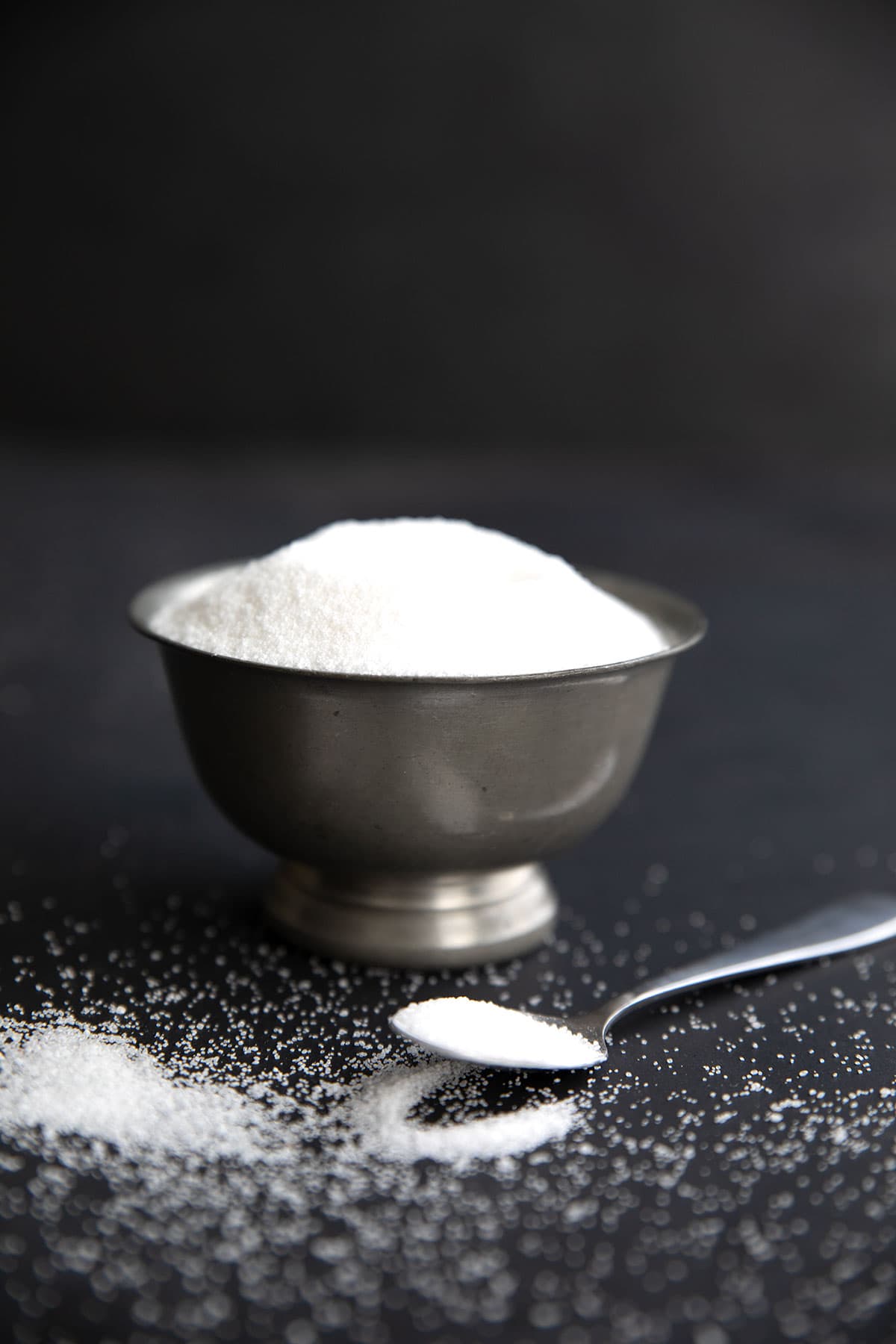
I have built a successful business and career on keto baking. I pride myself on my in-depth knowledge and understanding of low carb ingredients and how they behave. And many readers turn to me for advice on how to use these ingredients to get the best results.
One of those ingredients has recently come under fire (again). I’ve had numerous messages asking for my thoughts on the study about erythritol and blood clots. It has certainly raised concerns and I feel it is important enough to warrant a full discussion.
So let’s dig in.
Please note that I am not a medical professional, nor do I have any expertise in this matter. These are entirely my own thoughts and opinions, and should not be construed as medical advice. Readers are encouraged to consult with their physicians if they concerns.
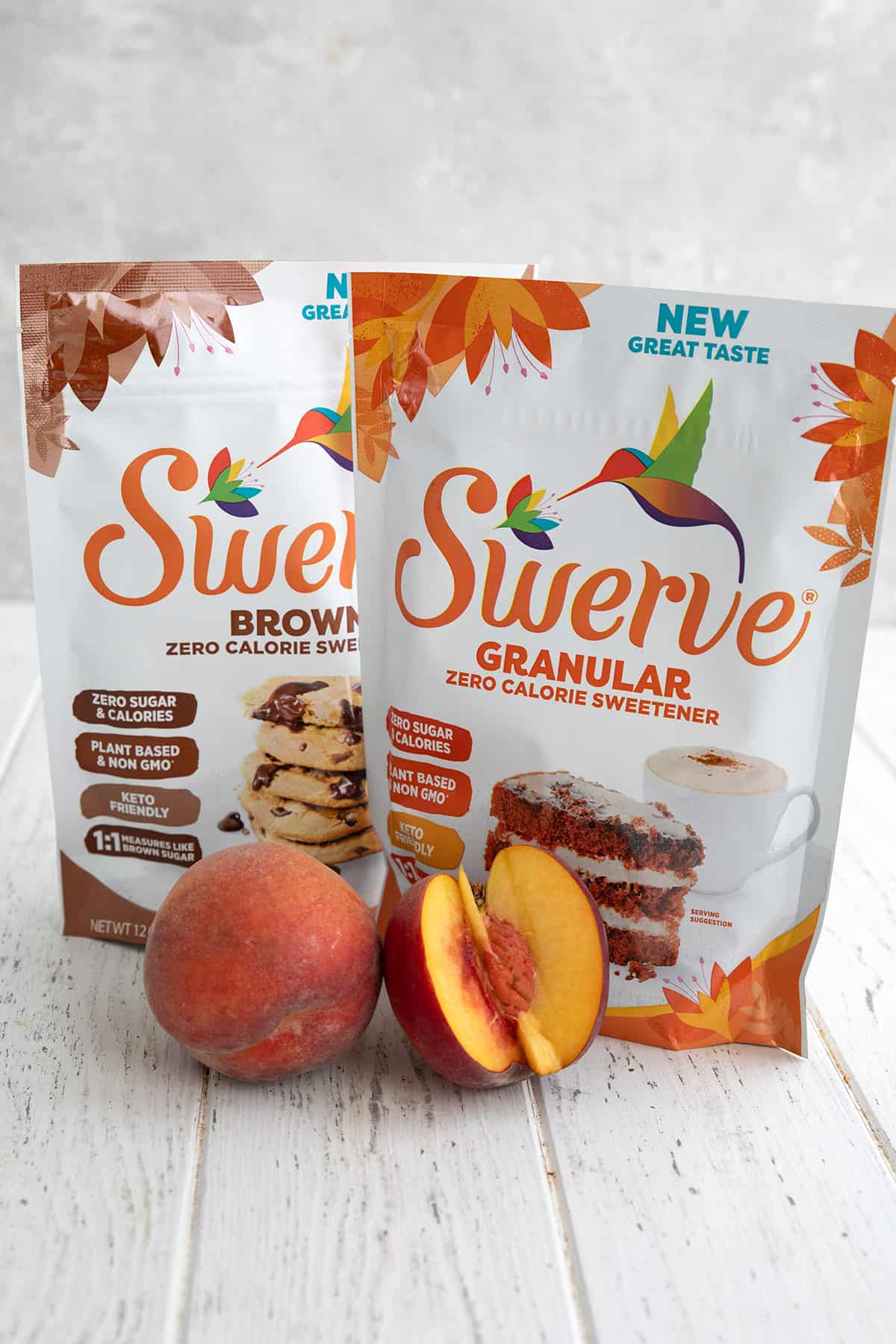
The study in question
In case you are unaware, erythritol was in the news recently because of a study that links consumption to blood clotting. This same association came up in 2023 in an observational study that had notable issues. The recent study, however, is a clinical trial. You can read the full article HERE.
The researchers compared two groups of 10 healthy participants (20 subjects total). The first group consumed 30g of erythritol in a water solution, the other group consumed 30g of glucose in a water solution. Their blood plasma was tested both before and after consumption. The group who consumed erythritol had a significant increase in “platelet aggregation responses”, indicating a greater tendency toward forming clots. The subjects who consumed the glucose solution saw no significant rise in these factors.
The researchers conclude that consumption of erythritol may enhance the risk of thrombosis events. This in turn increases the risk of heart attacks and strokes.

Study limitations
As with any clinical trial involving human subjects, this study has its limitations. And several of these are acknowledged by the authors themselves. Small sample size notwithstanding, I see some further issues that need to be recognized.
After digging into the original study, as well as reading some professional analyses, a few things jumped out at me. I will outline them as clearly as I can.
1. Amount of erythritol: The subjects drank solutions that contained either 30g of erythritol or 30g of glucose. That is a lot of erythritol to consume in one sitting! The authors state that they chose that amount because it’s “a quantity commonly found in erythritol-sweetened foods”. I take serious issue with this statement.
Granted, I do not use a lot of pre-packaged drinks and bars, but I have NEVER seen that amount in ANY product I have ever used. The sweetened drinks I occasionally consume, such as Remedy Kombucha, contain all of about 4g of erythritol. The NuTrail granola that I enjoy while traveling contains only 5g. The HighKey cookies that I snack on once in a while contain 8g.
Even the sweetest of my recipes (and I am talking recipes like Keto Chocolate Cake) contain about 20g of erythritol. And let me be clear, I do not consume all of these things in a given day. They are all once-in-a-while treats.
Let me reiterate: 30g of erythritol in one sitting is a huge amount.
2. Only erythritol was consumed: The participants were told to fast overnight, and their blood was tested before and after consuming the erythritol or glucose solutions.
That means that they consumed these solutions on an empty stomach with no other food or nutrients that might slow down the absorption of the erythritol or glucose.
This is a highly artificial scenario. I don’t know anyone who gets up and drinks a glass of sugar water or erythritol water for breakfast! The very thought makes me feel a little queasy.
Other macronutrients such as protein, fat, and carbs, have a mitigating effect on the absorption of every other nutrient. Fat, protein, and fiber are all known to take much longer to digest, slowing down the whole process. For example, something like Chocolate Protein Muffins, contain 8g of erythritol, but they also contain 13g of fat, 5g of carbs, and 12g of protein.
We don’t consume erythritol in a vacuum, as they did in this study. So we don’t really have any idea how quickly the erythritol would be absorbed into the bloodstream in a real life situation.
3. Timing of blood tests: The participants underwent blood draws to test their plasma at baseline (before consumption) and 30 minutes after consumption (post-prandial).
This is the part that has me flummoxed. Why would they not test the subjects at a number of intervals after consumption? As anyone with diabetes can tell you, testing at different post-prandial periods (1 hour, 2 hour, etc) can give you vastly different readings in blood sugar. Surely it gives vastly different readings in erythritol too. But they only tested once, quite soon after the subjects consumed the solutions.
The authors do acknowledge that this is a limitation, but state that they wanted to minimize the inconvenience to their subjects, as well as study the “the impact of acute dietary exposure” to erythritol.
But as my other two critiques point out, the “acute dietary exposure” of 30g of erythritol consumed on an empty stomach is a highly artificial and, to be frank, HIGHLY UNLIKELY scenario. Unless you get up in the morning and drink 5 or 6 erythritol sweetened beverages in a row, with no food. Does anyone actually do this?
With this methodology, we are left with no real understanding about what happens in the hours or days after consuming erythritol. Nor do we have any insight into what happens to those of us who consume much more moderate amounts of this sweetener, but on a more regular basis.
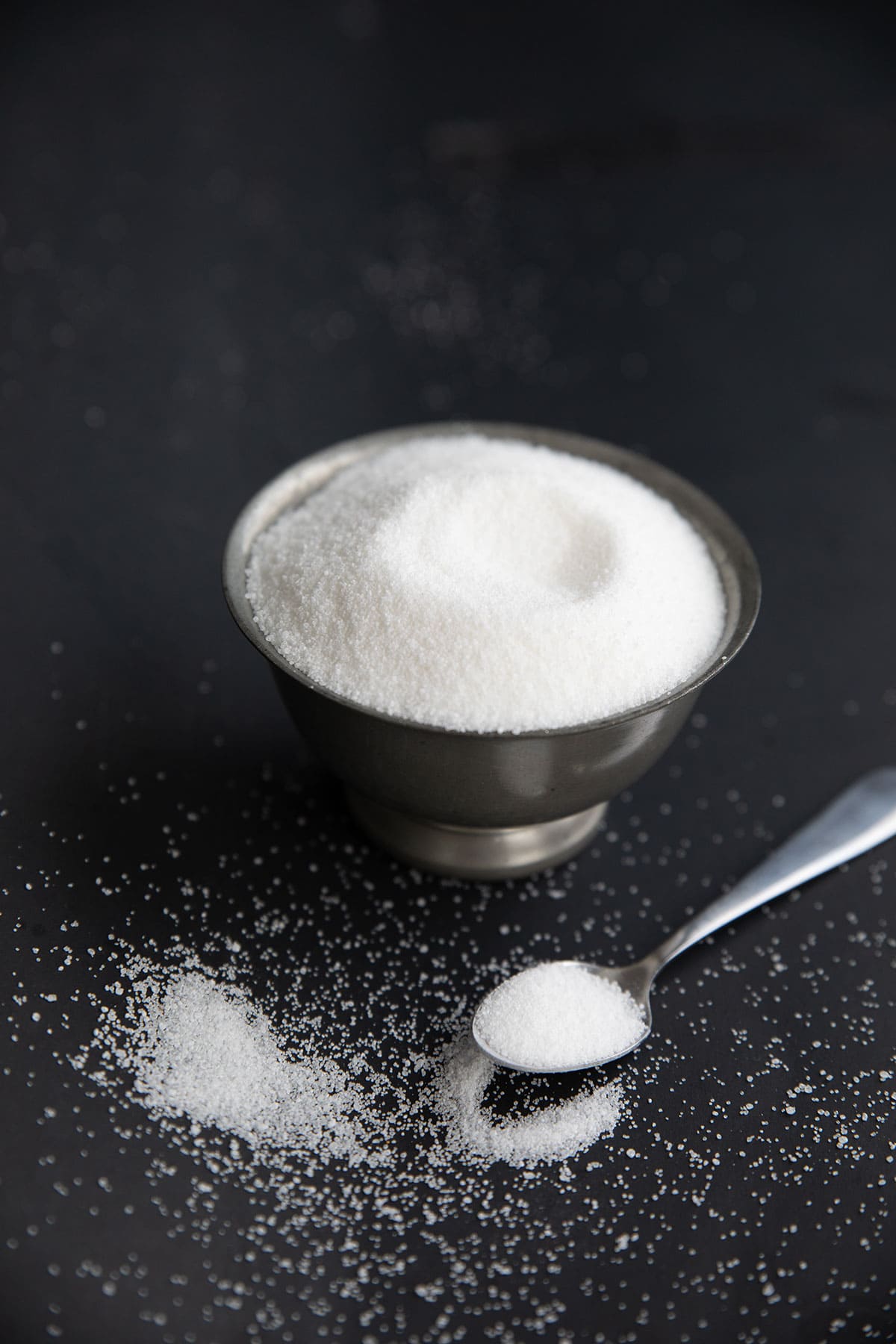
Should you avoid erythritol?
None of my study analysis is meant to downplay the potential health risks of consuming erythritol. The recent studies do bring up some serious concerns about the use of alternative sweeteners. So should you avoid it altogether?
I know you want me to give you definitive answers on this matter, but I simply can’t do that. The intent of this article is to give you some context so that you can make a more informed decision. We all must evaluate our own comfort level with any dietary choices that may have associated health risks.
As keto and low carb dieters, we do this all the time as it is. We are constantly bombarded with warnings about how much fat or salt we eat, or how we don’t eat enough fiber to be healthy. Or how carbs are NECESSARY for survival. Or how ketosis is bad for you.
I have been consuming erythritol for over 14 years. While I haven’t had my blood tested for platelet aggregation, I haven’t had any signs of adverse health effects. Mind you, I don’t consume the 30g they tested in one sitting, and I’d say it would be a very rare occurrence that I consumed that much in a whole day. But I do consume moderate amounts with some regularity.
That said, I started to cut back on my own consumption after the observational study came out in 2023. I have not eliminated it but I often cut it with other sweetener options such as allulose, and sometimes with stevia extract. I am a huge fan of the SweetLeaf Sweet drops for an added boost of sweetness and keep the little squeeze bottles in my purse and my baking cupboard.

Erythritol in keto desserts and treats
So what about all the wonderful keto cookies and delicious treats on this website? Will I stop creating them? That would be a firm HELL NO! Because that would essentially take most of my joy out of life.
Will I stop using erythritol sweeteners altogether? No, because sometimes erythritol is the best sweetener for the job. If you follow me, you know that I am a stickler for texture and consistency. And if you’re looking for a crisp texture for in a recipe like keto shortbread cookies, only erythritol will work.
But I am being much more mindful of how much I use in any given recipe. I also try to provide as many sweetener options as I can in the Tips section of each blog post. I can’t test every possible variation myself but I can give an educated guess as to the outcomes and any accommodations you might need to make. I started this practice quite some time ago and will continue to do it.
I have created an enormous number of recipes over the past 14 years, some of which live on this website and many of which do not. I cannot go back and fix every recipe already existing on my site or in my keto cookbooks. But I try to address these things as they come up.
Is this my final word on the situation? No, because it is emerging and changing as we speak. There will be future research and studies that may give us a clearer picture of the risks of consuming erythritol. I am going to do my best to stay abreast of it as much as possible and I am certainly open to discussion and hearing your thoughts too.

Free Bonus: Secrets to Keto Baking!
Sign up for your favorite recipes delivered straight to your inbox plus get our FREE bonus: Secrets to Keto Baking!
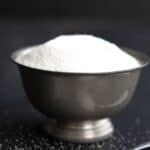

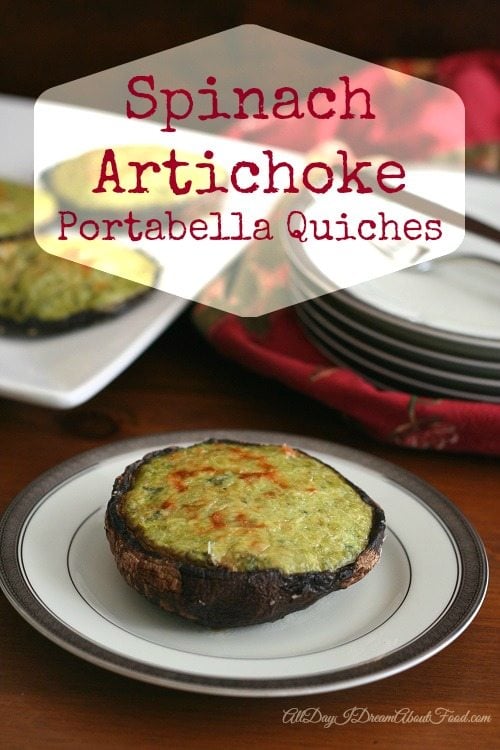












Thank you for taking the time to address this Caroline! I had mentioned it in a comment as well. I love to make scones and have had very good success with taste and texture using half and half xylitol and Allulose. I don’t notice any concern with browning too much but that’s probably because I’m not using that much and it’s not a super sweet pastry. Anyway or I am challenged is with the glaze. So I just decided I’m going to keep using swerve It works the best and it’s such a minuscule amount. Only half of my clients even like glaze so there you go. Sometimes I wonder if it’s really the sugar industry or (?) who is sponsoring these trials. They definitely are not very well done. I don’t think any of us are going back to sugar! Would love to see some of your treats using the sweet drops! I’m still not confident in how baking changes if you lower the amount of actual granular sweetener. obviously works great for anything liquid. As usual you are my keto guru and I always go to you first. And I always give you credit where I have been inspired by one of your recipes or actually followed it! I send a lot of clients to you!
Now they are attacking xylitol and saying that consuming high levels will possibly double the risk for heart attacks, stroke or death over the next 3 years. Nothing was said about the testing done other than studying 3000 people and the ones with the highest levels were the ones with the highest risks. But didn’t mention what level of consumption they ingested. To me this is irresponsible reporting. You only get part of the story. And it all comes down to how often are they consuming these products.
Hi Carolyn, I appreciate your research on the sweetener erythritol study. But my concern is if I’m calculating correctly according to the packages of the sweetener it is 8 g per 2 teaspoons. Which would make 192 g per cup. I would appreciate your feedback on this.
Ps, I love all your recipes. I also have all your books. Thank you.
Yes, that is correct. But you don’t eat a cup of erythritol sweetener in one go, do you? It’s usually divided by 12 or 16 servings. And a cup of erythritol in one recipe is a lot, unless it’s something like a big cake…
After the last 4 years of utter nonsense and lies by the medical industrial complex, I don’t believe much of what they say and there’s Always some agenda behind it. Butter was bad for you for decades, paid for by the Sugar industry, low fat was the only way to eat and red meat will kill you if you even look at it. Granted, those are real, whole foods and Erythritol is not in the same category, however the agendas are. The ridiculous amount of test subjects is embarrassing and like you pointed out, nothing was done based on reality. Furthermore, Big Ag & Big Pharma have been in bed together for over 50 yrs, Big Ag makes everyone sick and Big Pharma pushes a pill or serum to delude patients that one day they’ll be well. Healthy, fit people are an industry killer for both of those corrupted institutions. That said, it probably wouldn’t hurt to use it carefully while everyone needs to assess their own health. I did like this portion of the study though…
“Notwithstanding, long-term clinical studies with erythritol in humans are lacking, a pilot study tested a daily intake of 36 g/day for 4 weeks in 24 type 2 diabetics, which led to reduced arterial stiffness and improved endothelial function (12). As the dose provided by the long term study is 100-fold higher than the dose used in the in vivo study of Witkowski and Nemet et al. (3) any adverse effects of erythritol on platelet function might be outweighed by potential beneficial effects (5), or at the very least may not influence longevity.”
Amen!
Thank you for stating what I have been thinking as this topic has come up. There are so many flaws to this and the previous “study” that used 40 obese diabetics with cardiac issues! This was supposed to be better with 10 “healthy” patients? To your point why did they use such a small sample size and why did they only take one blood test within 30 minutes of being slammed with 30mg of Erythritol. Another question nagging at my brain is what the heck does “platelet excitation” mean? There is no proof in this study that shows platelet excitation leads to a blood clot or build up in the arteries. They just think it might. The unfortunate issue is that many “fudge” their data and experiments to get the result they want for their hypothesis. Has happened far too often and only strikes fear in people who don’t think to ask questions about what they hear or read. The rule still applies: all things in moderation is the wisest route to take.
Here is a link to Thomas DeLauer who has a great YouTube video on this study called “Shocking New Erythritol Study Was Not What Anyone Expected (clotting, stroke, heart attack)”. In his video he breaks down the study piece by piece and explains platelet aggregation and how they essentially “torture the blood” in a petri dish to get it to behave in the way it did. It’s very eye opening how deceptive the whole process was/is. They added ridiculously extreme amounts of a an aggregate chemical, a thrombin/clotting activator, to cause the type of reaction that would never occur naturally in the human body. The whole thing is extremely deceptive. I have used Erythritol as liberally as Carolyn for over 3 years as a part of my keto lifestyle and I am literally aging backwards by reversing so many chronic disease processes. It makes me sick what the medical industrial complex did to me for the greater part of my life and what it’s doing to the average unwitting human, especially here in North America.
https://www.youtube.com/watch?v=8IJC8NhHDgY&t=324s
Thank you for this great article. I just found an article https://www.ncbi.nlm.nih.gov/pmc/articles/PMC10242034/ that also reviews the above study. Thought you might find their comments in the “Discussion” section interesting regarding long term daily erythritol consumption as well as possible effects of eating it combined other foods and not just a one time drink. Also references to findings from a long-time rat study (yes, I know we aren’t rats).
Wow… this is so much in line with what I was saying. Thanks for this reference!
I’m so glad you posted this, thank you!
Thanks SO MUCH for posting this study! It neatly encapsulated some of my concerns around the flurry of erythritol damning “scientific studies” that have been pushed by people with unknown agendas. I SO appreciate the calm and measured responses to the topic that Carolyn posted (and her thoughtful summary).
Thank you for the dissemination of this study. I was concerned and now feel relieved that I am only ingesting small amounts each day.
Thanks so much for digging into this study and pointing out the flaws. Everything in moderation should be a motto we all live by.
Great discussion.As someone who follows research for a living, I really appreciate your analysis. It goes a long way towards informing consumers’ decision making processes about using, or not using, this product. Thank you!
Thank so much for your concise overview, saves us time! I agree with you, as a nurse myself, I can’t imagine anyone drinking 30gm, it would be gross tasting and also you’d get diarrhea. I’ll continue to use it in small amounts as a treat.
I am old enough to remember when cycla.ates were banned in the US and again when the FDA tried to ban saccarine. people with diabetes raised their voices over that. The study was something as ridiculous as the erythritol study. Rats were fed 30 times more than anyone would ever consume in a day for months. when they developed cancer, the saccarine was blamed. I have been consuming saccarine since cyclamates were banned back in the late 60s, early 70s. I still feel safer consuming saccarine instead of aspartame! I don’t bake every day or even every week, but when I do, I will use erythritol if it is the best sugar substitute for what I am making.
I do appreciate your suggestions regarding sweeteners. Thank you for looking out for your follower’s health.
Thank you for your input. I think it is important to be open to new studies. I’m interested in what exactly is their opinion of “healthy”. I am not knowledgeable in the area of platelet aggregation but this study is encouraging me to read more about it.
Hi, have you tried to find out who initiated and paid for this „study“? I wouldn‘t be at all surprised if the sugar industry were behind it!
AMEN, I’m with you!
Thanks for that excellent discussion of the article
Thank you for this article, as I had not heard anything about this before. I find that I have to be careful about the amount of erythritol I consume, as it tends to give me GI problems. I usually use allulose or monk fruit, or a combination of them both, as they do not have that effect on me.
We all have to do what works for us, as we process everything differently. I also see problems with this study, as those you mentioned. I worked in the medical field all my life and had a doctor I worked with tell me that if you look hard enough, you can find a study that agrees with what you wanted to find, so take them with a grain of salt.
Thanks again!
Janet
Thank you for the insight! I always like to try and follow the “money trail” of these studies if possible. It would be interesting to see if the sugar industry donated anything to this particular study.
Thank you for all this information.
Thank you for your common sense analysis of this subject. I feel like the consumption of loads of sugar and white flour far outweigh any adverse effects we may get from a little erythrothol!
Excellent article, and I agree with the points you made about the huge amount of erythritol, taken all at once, with no other food. Would you know if they are doing studies on all the sweeteners? I know stevia and monk fruit stand out as 2 of the top “safe” sweeteners but do we know that for sure after they have been “manhandled” and prepared for shelf life ? Thank you for sharing.
They all get studied separately, with different methodology, and for different reasons, which makes it hard to compare studies directly. At this point, I have not seen any solid research on those sweeteners after they’ve been processed vs. their pure form.
Thank you for your honest and personal insight on Erythritol. Makes me think of a loooong time ago when the “experts” fed laboratory rats with saccarin, and deemed this to cause cancer.
I believe a real controlled clinical trial will result in a very different conclusion to this present “trial”
Oh, and I will continue using Erythritol, being the best tasting non-sugar sweetener out there. Also, this is just my opinion.